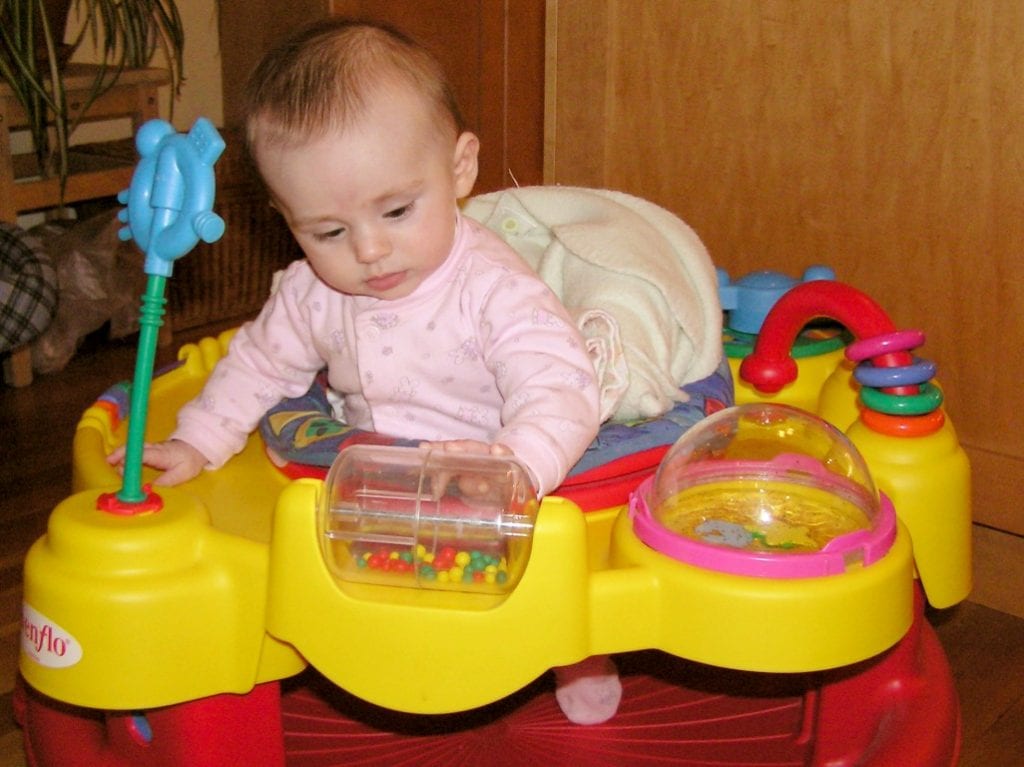Your child’s sleep journey is interesting. They will sleep a lot when they are newborn, and over time, sleepless. They may need three naps a day and then one long night’s sleep. Over time, that transitions to two naps, then one, then none. It is quite an interesting adventure, and every child reaches the end of their journey differently.

However, your child’s sleep adventure isn’t without its bumps in the road and challenges. One enemy you may face is sleep regression. Sleep regression happens at some milestones, such as 4 months. It can happen after 12 months as well, which ironically enough, is usually the time for less sleep. When sleep regression happens, it can make the entire family frustrated. Here’s what you can do about it.
Sleep Regression
Sleep regression is when a child has difficulty sleeping, and it’s sudden with no seeable cause. This can show up during nap time or at night. A child may go to bed at night, then wake up and have a hard time falling back asleep.
This is frustrating for the child and you. However, it is normal, temporary, and part of a growing person. It happens due to the body and brain developing, so it’s nothing much to worry about in most cases. If you feel like it’s a cause of worry, see a doctor and they can help you with any questions you may have.

Why Does It Happen At 12 Months?
Sleep regression can happen at 12 months. While it doesn’t affect every baby, it affects quite a few. Here are some reasons why your 12 months old may have a hard time falling asleep.
- Kids Are Learning to Walk
As a child learns how to walk, they may be less interested in sleeping. They are naturally exploring their new skills and may feel less interest in sleep, and 12-month-old sleep regression happens. They may get up at night and walk around instead of going to bed. It’s just a normal part of the development, and your kids may be stretching their legs.
- They Are More Aware
Not to mention, they are just more aware of the world around them. They are having fun and exploring the world, and it can make it harder for them to sleep. A newborn just let’s sleep naturally come, but by a year, a kid is testing the limits of sleep, and they may be paying the price.
- They Need Fewer Sleep Hours
When they hit the year mark, their sleep hours do change. They usually need a little bit less, and it can be hard for them to adjust initially, and that’s okay. With that said, they still need lots of sleep, so make sure they’re getting them.
How Long Does It Last?
Sleep regression is temporary. Like about insomnia, it lasts a couple of weeks, but for some kids, it can last well over a month. The 12-month-old sleep regression is normal and happens to other babies. But if you feel like your child’s sleep regression isn’t improving, talking to your pediatrician may be a good move.
Can Sleep Regression Be Helped?
Sleep regression is something that can’t be prevented, but like a bout of insomnia, there are ways to improve your child’s sleeping and reduce the length of the regression. Here are some ways to do so.
- Play More
At around 12 months, kids are so energetic, and they may have a harder time falling asleep as a result. They may have the energy they want to express. Make sure your little one has enough playtime, and they may be able to fall asleep much better. This applies to adults, too. If you’re having a hard time sleeping, some exercise may be the solution you’re looking for.

- But Comfort More Too
Sleep regression can make it harder for someone to fall asleep. Like insomnia, it’s a vicious cycle where someone can’t sleep because they’re too tired. When your child is overtired, calm them down and give them some resources to unwind. Play some soft music, read a story, and be there if your child feels grumpy. Tell them that this is normal, and eventually, they will fall asleep.
- It’s Not Time to Drop a Nap
You may feel like it’s ready for your child to drop a nap, but that usually doesn’t happen for a few more months. In most cases, you should keep the naptime schedule as consistent as possible. If they continue resisting naptime, then it may be time for you to drop that nap, but in more cases than not, they aren’t ready.
- Don’t Regress During Regression
When your child was a baby, they fell asleep by rocking and other babylike habits. However, when your toddler is dealing with sleep regression, don’t fall back on these moves. Your toddler may have a hard time falling asleep unless they are being rocked. You do want to teach your little one to fall asleep without these crutches, so make sure you do so. The 12 month old sleep regression can be overcome with a little extra effort and patience from the parents.
Sleep Hygiene Is Important
Always make sure you’re following some form of sleep hygiene with your little one. These are rituals you do an hour or so before bed to prepare your baby for sleep. Examples include taking a bath in some hot water, listening to soft music, avoiding electronics, and reading a story. Maybe a snack before bed too. This can help your baby fall asleep much better at night.

Do It In Shifts
Sleep regression can make the entire family sleepy. If you have a partner, make sure they are taking care of the baby as well and shift between parents so both of you can get a decent amount of sleep, by the standards of sleep-deprived parents anyway.
Don’t Get Angry
Easier said than done, we know, but it’s not your baby’s fault. They don’t like the overtired feeling, either. Don’t yell at them for not falling asleep. That’s going to make the problem worse.

12 Month Old Sleep Regression Conclusion
Sleep regression is a hassle for all, but with a little patience, it can be fixed.
FAQs On 12 Month Old Sleep Regression
Last Updated on June 24, 2022 by Jejomar Contawe
DISCLAIMER (IMPORTANT): This information (including all text, images, audio, or other formats on FamilyHype.com) is not intended to be a substitute for informed professional advice, diagnosis, endorsement or treatment. You should not take any action or avoid taking action without consulting a qualified professional. Always seek the advice of your physician or other qualified health provider with any questions about medical conditions. Do not disregard professional medical advice or delay seeking advice or treatment because of something you have read here a FamilyHype.com.